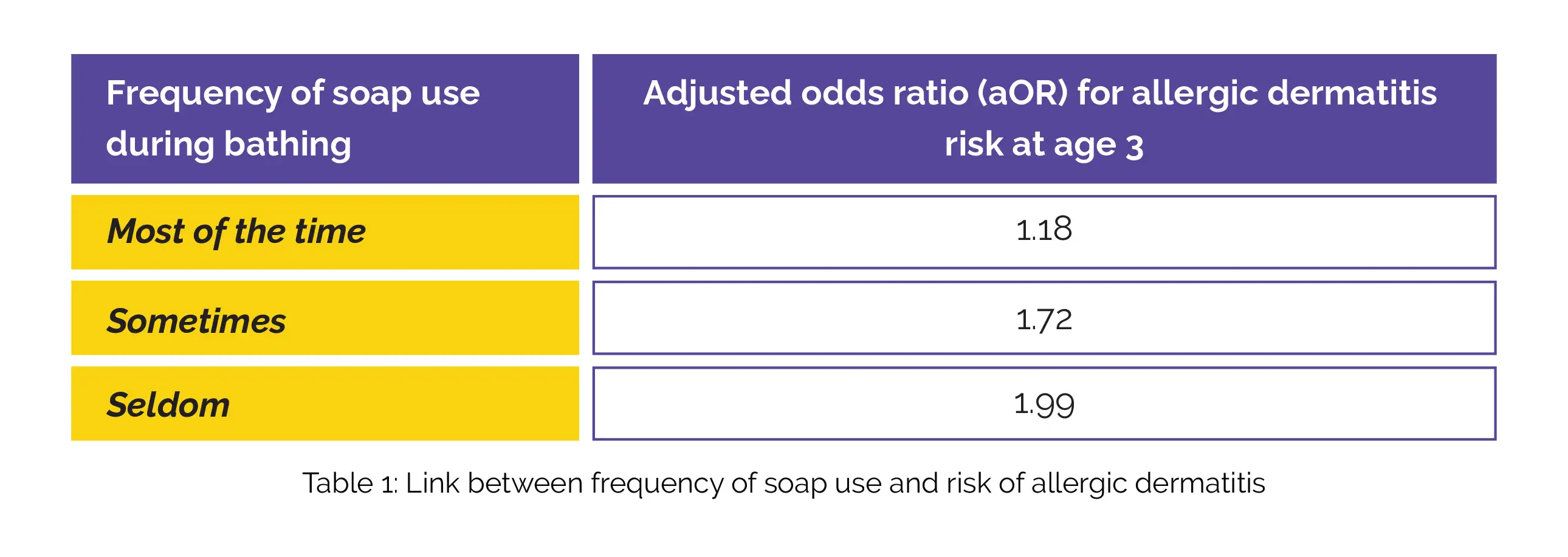Categories
Change Password!
Reset Password!


Researchers conducted a study with the goal of examining how bathing habits in infancy, known to influence skin conditions, could be linked to the future development of allergic diseases.
Regularly using soap while bathing 18-month-old infants was linked to a reduced likelihood of developing allergic conditions by the time they reach 3 years of age.
Researchers conducted a study with the goal of examining how bathing habits in infancy, known to influence skin conditions, could be linked to the future development of allergic diseases.
A total of 15 pregnant women were recruited in this nationwide birth cohort study. Information on the bathing habits of their 18-month-old infants and the occurrence of allergic diseases when the children reached 3 years of age was collected. The children were segregated into four groups based on how often soap was used during bathing: (1) Every time, (2) Most of the time, (3) Sometimes, and (4) Seldom.
The study analyzed data from 74,349 children. The majority of 18-month-old infants were bathed or showered almost daily. The findings revealed that the risk of allergic dermatitis at the age of 3 elevated as the frequency of soap use decreased, in comparison to those who used soap every time during bathing at 18 months old, as depicted in Table 1:

Similar results were observed for food allergy, but no significant association was found for bronchial asthma.
Soap use could potentially influence allergen sensitization through the skin in younger kids.
Regularly using soap during bathing 18-month-old infants was linked to reduced susceptibility to allergic diseases at 3 years of age. However, additional well-designed clinical studies are needed to establish an efficient bathing routine that can help prevent the onset of allergic diseases.
Pediatric Allergy and Immunology
Association of soap use when bathing 18-month-old infants with the prevalence of allergic diseases at age 3 years: The Japan Environment and Children's Study
Taisuke Kato et al.
Comments (0)